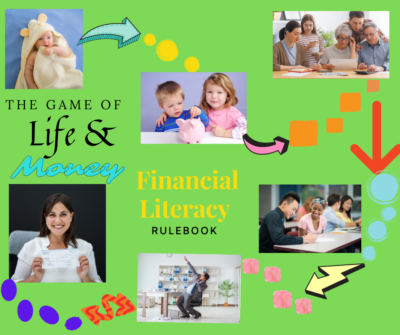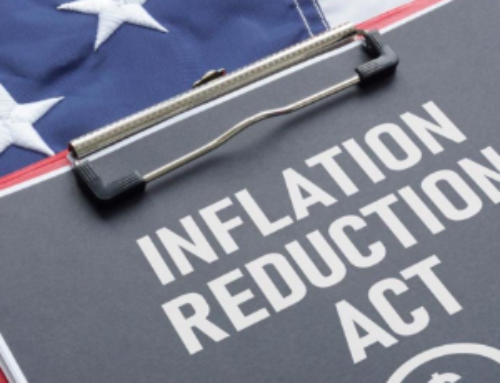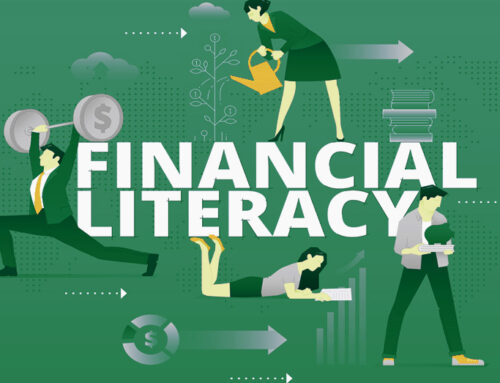Young adulthood and financial literacy
So, you have crossed the threshold into adult life. These years bring many first….. the first job, getting married, first home, and first child. If you don’t learn to manage your own money, other people will find ways to manage it for you. These people may be ill-intentioned or well-meaning. Either way, the best course of action is in addition to seeking advice is to learn the most you can on your own. Read books, watch videos, read financial articles online. There are many forms and outlets for getting a financial information.
If you are not sure where to start consider talking to a teacher, counselor or the librarian at school. Additionally, you can talk to a mentor, relative or someone you admire for valuable insight. Lessons can be learned in the media as well. You can watch CNBC or FOX business on cable. The internet also has websites like FDIC, CNN’s Money 101 and Khan Academy offers free financial online courses. Go old school and read the Wall Street Journal or local papers like New York Times and Washington Post. These days podcasts are becoming a prominent venue to learn. Try listening to Freakonomics Radio podcast or Afford Anything. The point of all these choices is to understand that information is all around us. You need to keep your eyes open, your mind curious and a bit of skepticism too. The more you learn the more confident you will be as you move forward into the journey of life.

Beyond the knowledge of finances, you also need practical life applications. First practical lesson once you’ve started living on your own, you’ll start to realize this annoying fact: Life is expensive. Cost is a major concern for anyone who is planning to attend college or is already enrolled. The good news is that if you’re looking ahead, you’ll have plenty of time to assess your expenses, make a budget and find ways to pay for everything from textbooks to visits back home. Creating a realistic list of expenses will help you pay for the essentials and avoid going into debt or taking out additional loans. Planning is the key to survival and avoiding money mistakes. Basic skills in budgeting and banking are important to start learning at this point in life.
Since you are just going out on your own for the first time you can get in serious financial hardship without realizing it quickly. Developing good money skills early is the best time to learn. While a part of learning is to learn from mistakes. Some of these mistakes can have long-term consequences so it is best to be careful. Now is the time for you to start building good credit so you can meet future goals. It is important to weigh each of your purchases considering want vs. need. A major mistake that can be made is to get into deep credit card debt. In addition, understand that your goal is to pay all your bills on time, every time.
A harsh reality of life is also understanding that nothing is guaranteed. Just because you have a job today, doesn’t mean you will tomorrow. Or your new friend and roommate may not help with household bills or pay the rent on time. That car you just bought can break down or you can get some unexpected medical bills too. These realities are a part of life. They happen to all of us. A good way to allow for these problems is to create an emergency fund. No one is expected to have a fully funded emergency savings account but it is important to start setting money aside for things like these, and remember these savings are only true emergencies.
Finally, as we have said you should understand you are on a learning curve and will make some financial mistakes. Some will be bigger than others. It is important to understand that help is available if you need it. Don’t be afraid to ask for and get help. There are many options such as your parents, responsible adults you trust, credit counseling services and if you are in college there may be options on campus too.









